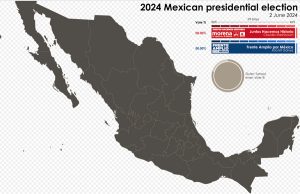
Julian Lee, Bloomberg News
LONDON
EnergiesNet.com 06 30 2022
Since the US and its allies began to shun Russia’s oil and gas, there’s been little sign that the measures are inflicting the kind of pain that might force President Vladimir Putin to rethink his war in Ukraine. Other countries including China and India are still buying Russian energy, and a surge in prices has softened the blow from the sanctions. So Putin’s adversaries were weighing a new idea: make Russia sell its oil and gas so cheaply that it can no longer afford to wage war. The move, while hard to execute, would also help a global economy struggling with higher energy prices that have fueled inflation.
1. What’s being proposed?
The US, the UK and Canada have announced bans on Russian oil, while the European Union plans to ban seaborne imports of Russian crude by December and refined fuels by early 2023. In a further step, US Treasury Secretary Janet Yellen was pushing the idea of allowing nations that abstained from sanctions to keep buying the oil, but cap the price in order to slash Moscow’s profits on those sales. European Union leaders also asked the EU Commission to explore an Italian proposal to cap gas imports at a certain price.
2. How might an oil price cap work?
Group of Seven nations agreed at a June summit to explore ways to prohibit “all services, which enable transportation of Russian seaborne crude oil and petroleum products globally, unless the oil is purchased at or below a price to be agreed in consultation with international partners.” Their most important lever is likely to be insurance. Around 95% of the world’s oil tanker fleet is covered by the International Group of Protection & Indemnity Clubs in London and some firms based in continental Europe. Western governments could try to impose a price cap by telling buyers they can keep using that insurance, as long as they agree not to pay more than a certain price for the oil on board.
3. What could be the impact?
Putin says Western nations are suffering more than Russia from the economic penalties they imposed over his invasion of Ukraine. Surging prices of Russian commodity exports have brought excess revenue that’s helped his government to weather the sanctions. Backers of a price cap hope that pinning prices at a level closer to the cost of production would deal a blow to Moscow’s finances, while still ensuring that energy flows to where it’s needed. As Russia is one of the world’s biggest oil suppliers, a price cap could also relieve inflationary pressure that’s causing economic hardship across the world.
4. What are the obstacles?
A global price cap couldn’t work without the agreement of European nations, and that would force the EU to reopen the legal text of its latest sanctions package, which included a ban on insurance cover for Russian oil shipments. The sanctions took weeks to approve and had to overcome significant hurdles since they required unanimity among the 27 EU nations. If the allies did agree on a price cap but it failed to hold, it would hand a symbolic victory to Putin. There are plenty of ways that it might fail: There’s no guarantee that Russia would agree to ship oil at capped prices, particularly if the cap is close to production cost. The Kremlin may believe that holding its oil off the market for a while would do more damage to the economies of Europe and North America than to its own.
5. Would big buyers of Russian oil fall into line?
A price cap may be incredibly profitable for Chinese and Indian businesses, and good for combating inflation. But there are wider considerations for Beijing and New Delhi, such as their long-term relationship with Moscow. They may accept to take inferior Russian insurance rather than be told what to pay for a key commodity, even if it’s at an attractively low price. Moscow has already begun to put in place an alternative to the P&I clubs, offering insurance through the Russian National Reinsurance Company. It’s not clear if buyers are ready to accept it.
6. How about capping Russian gas prices?
G7 nations were also evaluating a potential gas price cap. The idea faces major hurdles in Europe, Russia’s biggest gas export market. Putin has already shown he’s ready to use gas as a weapon in the standoff over Ukraine, cutting supplies to the EU and throwing the market into turmoil. Capping prices could prompt Russia to retaliate by slashing deliveries further, making it harder for Europe to refill storage sites before winter and pushing energy-intensive industries to breaking point.
bloomberg.com 06 28 2022










